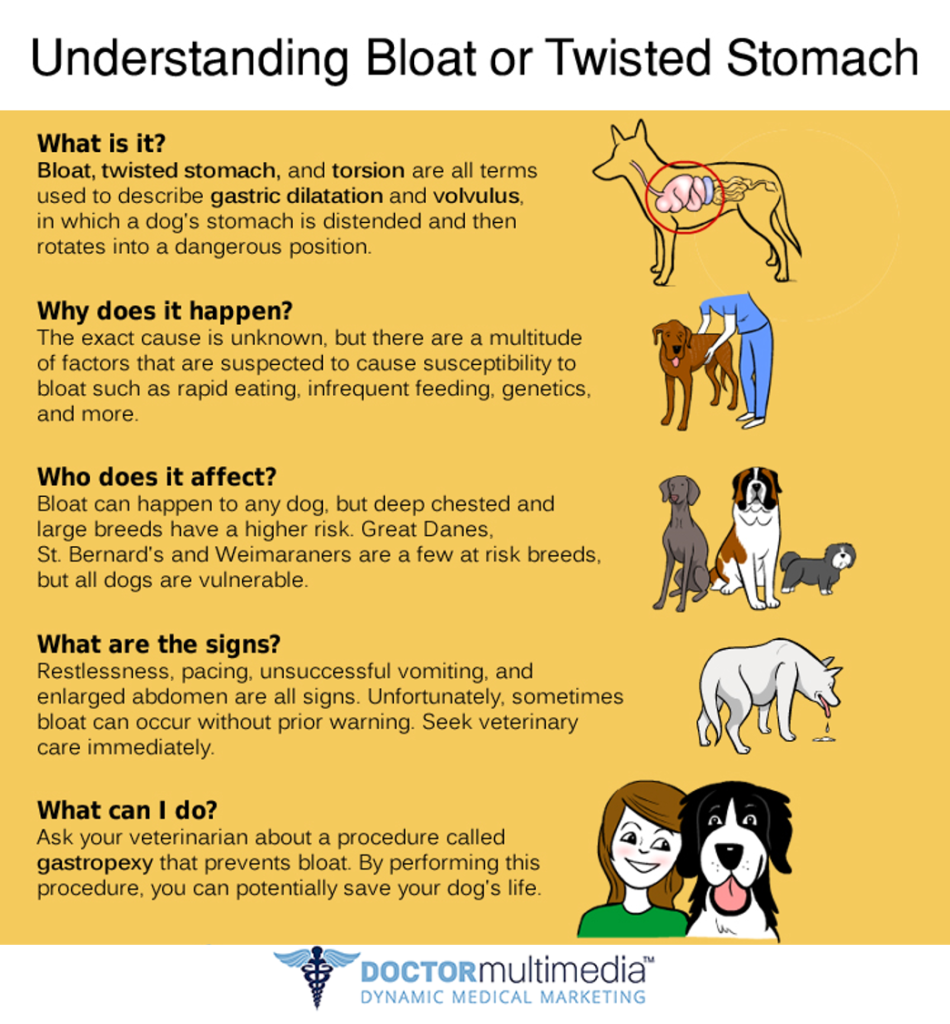BLOAT – GASTRIC DILATATION-VOLVULUS (GDV)
BLOAT – GASTRIC DILATATION-VOLVULUS (GDV)
IF YOU HAVE EVER WATCHED THE FILM “MARLEY AND ME”, THEN YOU KNOW THE DANGERS OF BLOAT (GDV).
Gastric Dilatation-Volvulus (GDV), commonly called bloat, is an emergency medical condition this is seen most commonly in large and giant breed dogs. This is a life-threatening situation that occurs when the stomach fills with gas and/or food, expands, an then rotates, trapping gas inside the stomach.
As pressure in the stomach builds up and cannot be released, the stomach builds up and cannot be released, the stomach can twist within the abdomen.
Once this occurs, the blood supply to the stomach and spleen is compromised and the tissue becomes necrotic (dies) leading to bacteria being released into the abdomen. Expansion of the stomach also has serious effect on the heart and lungs, causing difficulty breathing and abnormal heart rhythm. Most dogs will go into shock soon after the signs of GDV are seen. Death can occur within a matter of hours (or less).
To prevent bloat some environmental changes that have been recommended include: feeding on a raised platform, feeding more frequently with smaller portion sizes, and withholding exercise for several hours after eating. These methods have not been proven so bloat could still occur.
The good news is veterinarians can prevent this terrible disease with a procedure call a gastropexy. A gastropexy is where the stomach is attached to the body wall to prevent the rotation of the stomach when the stomach fills with gas. The procedure can be performed by either traditional surgery or minimally invasive techniques that are being utilized in human surgery.
GDV is a terrible life-threatening disease that gives minimal warning. If you know animals that are at risk for this condition please take precautions. Doing so will have life saving consequences.
WHAT ARE THE GENERAL SYMPTOMS OF BLOAT/GDV IN DOGS?
- Distended abdomen
- Unsuccessful attempts to belch or vomit
- Retching without producing anything
- Weakness
- Excessive salivation
- Shortness of breath
- Cold body temperature
- Pale gums
- Rapid heartbeat
- Collapse

Please contact us today to make an appointment to discuss this Veterinary Endoscopy procedure with one of our New Hope Animal Hospital doctors in Cedar Park TX.
